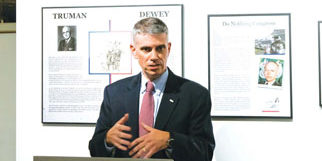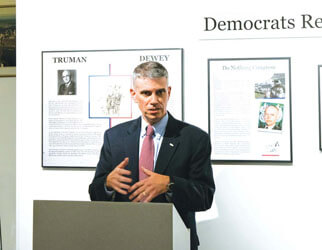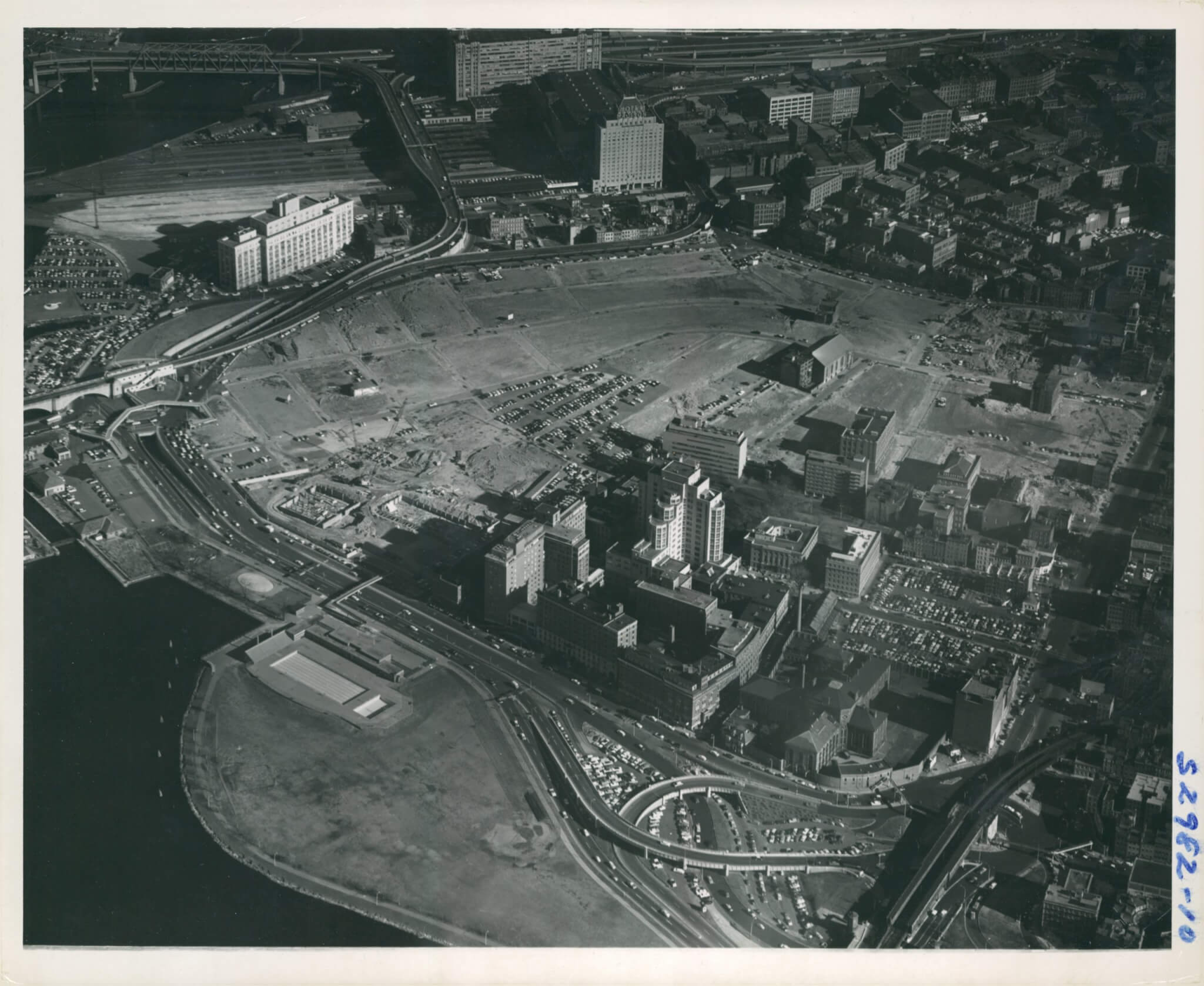BRA Director Issues Formal Apology to Former West Enders
On September 29th, during the opening reception for Dewey Defeats Truman/The Housing Act of 1949, former West Enders heard something they’ve never expected in the nearly 50 years since urban renewal destroyed their community: A formal apology.
Brian Golden, director of the Boston Redevelopment Authority (BRA)—the agency that oversaw the razing of the vibrant meting pot of a neighborhood in the late 1950s and early 60s—acknowledged the painful legacy and expressed remorse for the suffering inflicted on more than 10,000 residents all those years ago.
“We offer an official but heartfelt apology to the West End families affected,” said Golden. “The old West End was destroyed in the name of ‘slum clearance.’ Although the damage was done decades ago, it still remains.”
One resident displaced by that so-called slum clearance program, Jim Campano, said he never thought he’d hear such an apology. Campano is the Founder and Editor of The West Ender newsletter as well as a member of the West End Museum board of directors. Of the BRA apology, he said, “It was good to hear, but it was too late to be of any use. It had no real effect.” Still, he recognized it was a historic moment. “All these years, they never said they were sorry they did it; that it was morally wrong.”
The West End urban renewal project not only physically demolished the tight-knit neighborhood, but also killed its spirit, as most of the residents who’d been promised the right to return were instead displaced permanently. Click here to hear more in the NPR story about the West End and Boston’s controversial history of urban renewal, featuring West End Museum Curator Duane Lucia and Tour Guide Bruce Guarino.
The Boston Globe’s Jon Chesto wrote the apology came, “at a time when officials are trying to build support for a 10-year extension of the BRA’s urban renewal powers. Golden referenced that fact in his speech and said the BRA hasn’t been in the business of clearing neighborhoods for a long time. It wants to use these tools, he said, in a much more nuanced manner now.”
Those devastated by the BRA’s actions in the 50s and 60s certainly hope that’s true.




